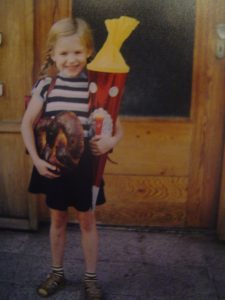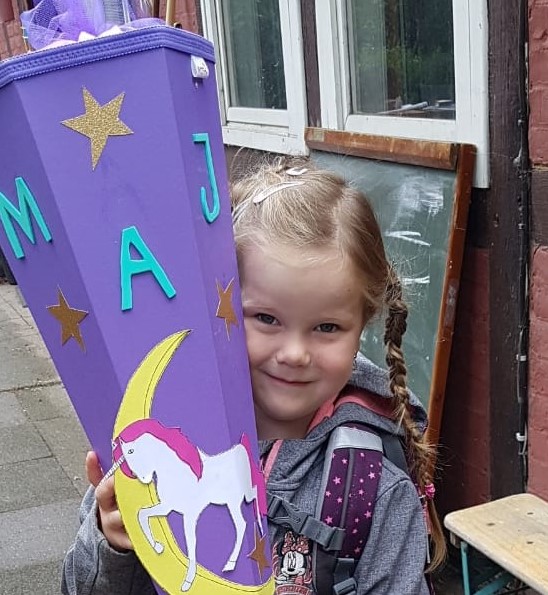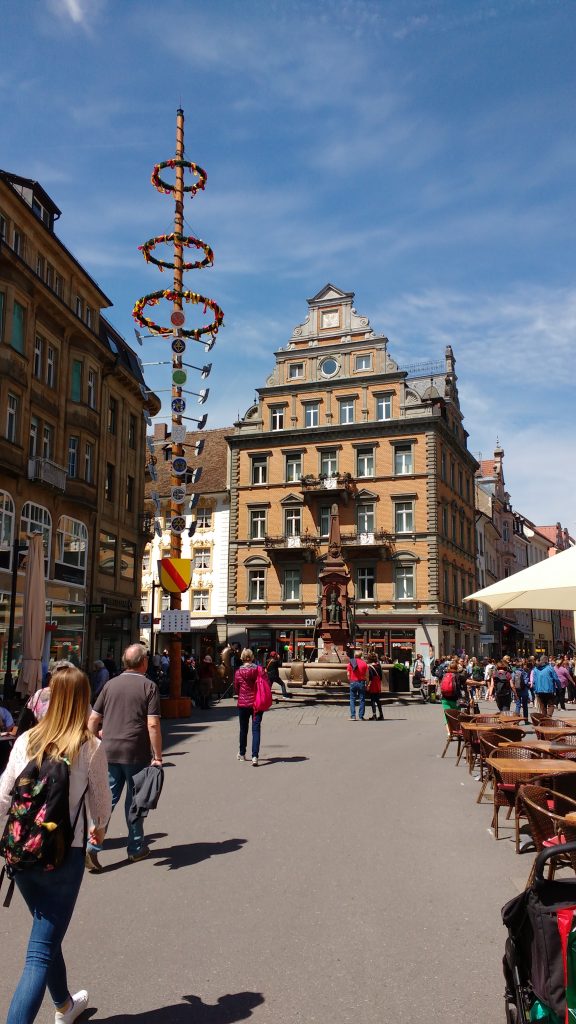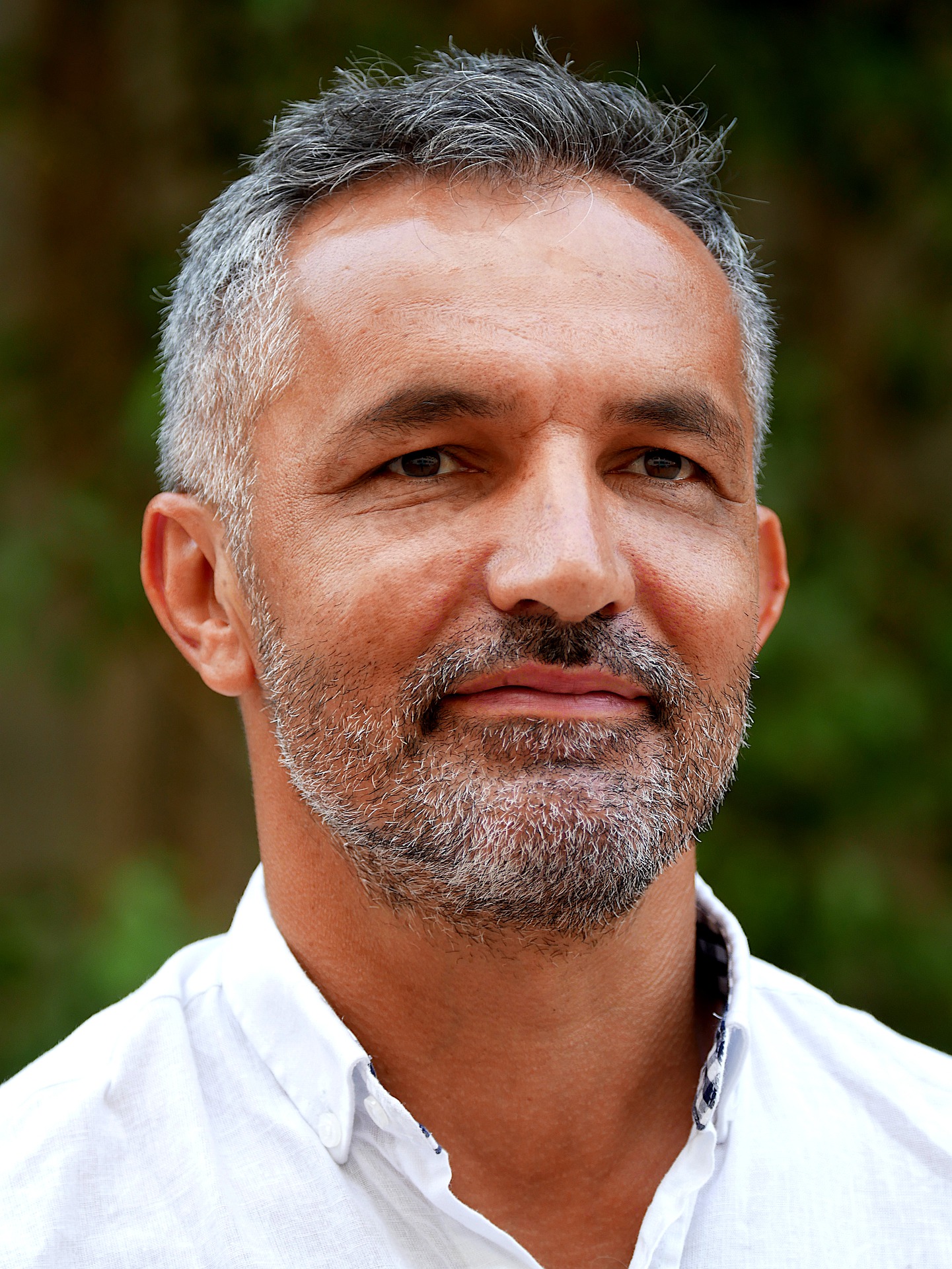Einheit 5.6 (online)
Der erste Schultag
|
In Einheit 2.4, you learned about the German school system. Do you remember what children receive on the first day of school? For German children, the first day of (elementary) school is a big event! As there is no pre-school in Germany, starting grade 1 in elementary school is a clear break from the playful kindergarten or daycare that most kids attend before. It signifies the start of their 9-13 years of education that follow and as such, it is celebrated in style. The most important item that children receive on their first day of school is the “Schultüte” or school cone, made out of paper and filled with sweets, toys, small gifts, and school supplies. In some regions of Germany, the “Schultüte” is therefore also sometimes called a “Zuckertüte”. “Schultüten” are meant to “sweeten” the children’s entry into the more serious world of school and education. The tradition of the “Schultüte” goes back to the late 19th century, but it is still very much alive today. Children receive their “Schultüten” from their godparents or parents and take them to school on the first day. After school is over, they unpack their “Schultüten” at home and enjoy their presents. The first day of school is sometimes also celebrated by having cake in the afternoon with relatives and neighbors. |

Claudias erster Schultag! |
![]() Übung 1: Majas erster Schultag! Choose the correct auxiliary verb.
Übung 1: Majas erster Schultag! Choose the correct auxiliary verb.
 |
[h5p id=”125″] |
![]() Die Geburtstagsparty. Jessica und Jakob treffen sich auf dem Marktplatz. Hören Sie zu und beantworten Sie die Fragen.
Die Geburtstagsparty. Jessica und Jakob treffen sich auf dem Marktplatz. Hören Sie zu und beantworten Sie die Fragen.
 |
[h5p id=”126″]
|
![]() Grammatik
Grammatik
Simple Past Tense: “haben” and “sein”
Usually, when talking about events that happened in the past, we use the perfect tense. However, the verbs haben and sein are more commonly used in the simple past tense instead of the perfect tense.
You have seen examples of the simple past tense in Thomas’ and Mario and Silvia’s description of their weekends:
Thomas hatte ein total langweiliges Wochenende!
Sein Fahrrad hatte einen platten Reifen.
Silvia und ihre Freunde waren nach dem Frisbeespiel ein bisschen müde.
Das Essen im afghanischen Restaurant war sehr gut.
| sein | haben | ||
| ich war | I was | ich hatte | I had |
| du warst | you were | du hattest | you had |
| er/sie/es war | he/she/it was | er/sie/es hatte | he/she/it had |
| wir waren | we were | wir hatten | we had |
| ihr wart | you (plural) were | ihr hattet | you (plural) had |
| sie/Sie waren | they/you (formal) were | sie/Sie hatten | they/you (formal) had |
![]() Übung 2: Anna war krank.
Übung 2: Anna war krank.
[h5p id=”127″]
![]() Grammatik
Grammatik
Perfect Tense (2)
Please work through the following presentation to learn more about the perfect tense.
*Achtung* Here is a list of common irregular verbs.
![]() Übung 3: Ein schrecklicher Tag für Herrn Romano
Übung 3: Ein schrecklicher Tag für Herrn Romano
| [h5p id=”128″] |  |
![]() Wortschatz in Quizlet:
Wortschatz in Quizlet:
![]() Was wissen Sie jetzt? Quiz 2 auf Canvas.
Was wissen Sie jetzt? Quiz 2 auf Canvas.
Media Attributions
- der erste Schultag
- star
- Maja
- headphones
- Marktplatz
- light-bulb
- man-4623801_1920
- check mark
awful
